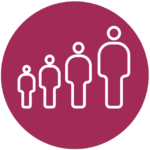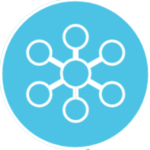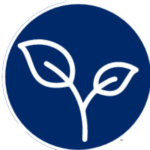As the COVID-19 pandemic continues, mental health and addiction challenges have emerged as a major health crisis that will continue beyond the distribution of a coronavirus vaccine. Social distancing, anticipated cycles of stay-at-home orders, and business and school closures are producing widespread social isolation and economic distress. Frontline workers, children out of school, and families struggling financially are especially vulnerable, with Black, indigenous, and people of color (BIPOC) communities disproportionally affected. An epidemic of “deaths of despair” prior to COVID-19 is now accelerating with an estimated 75,000 additional lives anticipated to be lost from suicide, and drug or alcohol misuse.[i]
Against this context, individual donors and foundation funders are asking: How can I help?
Here you’ll find our team’s answers, building off recent efforts:
COVID-19 Pandemic: How Can I Help? and Health in Mind: A Philanthropic Guide for Mental Health and Addiction.
Respond to COVID’s disruption of education – from early childhood through post-secondary

Learn more: Focus on Young People, a Health in Mind strategy
COVID-19 restrictions have closed or interrupted daycare centers, K-12 schools, and college campuses, affecting children from age 0 to early adulthood. At the same time, many caregivers are in distress, struggling with working from home while caring for young children or facing economic hardship due to unemployment or reduction in hourly wages. All of this has led to an increase in behavioral health problems among children and those caring for them. Here’s how you can help affected groups.
For the youngest children and their caregivers
The National Service Office for Nurse Family Partnership (NFP) and Child First, the newly formed partnership between Child First and NFP, provides a full range of services for families and children experiencing the effects of poverty and adversity.
Sesame Workshop educates young children and their parents on difficult subjects such as substance use disorders or racial inequity.
For school-aged children
Friends of the Children supports children who have faced multiple adverse childhood experiences through long-term mentorship.
For teens, adolescents, and young adults
JED Foundation and Active Minds support teens as they transition from high school to college and cope with the difficulties of online learning.
YV Lifeset engages at-risk youth to set and achieve goals for housing, education, employment, and other aspects of independent life.
Youth Guidance’s Becoming a Man (BAM) and Working on Womanhood (WOW) programs support Chicago youth dealing with traumatic stress and other challenges through group counseling and clinical mentoring programs, now mostly online, to improve social-emotional competencies and reduce impact of exposure to violence for adolescent boys and girls respectively. For more, read our profile from Reconnected: Opportunity Youth Toolkit.
For educators
TREP Project trains educators serving children in neighborhoods with high levels of toxic stress
Facing History provides training and other resources for educators on remote learning practices and engaging their students on issues related to COVID-19 and recent civil unrest in a safe and supportive way. Philanthropy can also support schools locally to extend services typically provided in school to children at home.
For mothers experiencing addiction
Meta House supports women and their children access therapy, use vocational and educational services, and break the cycle of intergenerational substance dependence through treatment and holistic family support.
For families
CLASP convenes advocates at the local, state, and federal level to prompt policy change that address the comprehensive needs of families, including child care and early education, maternal mental health, young adult behavioral health, other health care and nutrition assistance, support in education and work, and addressing racial inequities in systems
For more on ensuring children have a strong start in life see our Early Childhood Donor Toolkit. For more on other strategies to address mental health and addiction among youth, see Focus on Young People in Health in Mind. To help youth and young adults who were already disconnected from school or work, see Reconnected: Opportunity Youth Toolkit.
Address the racial disparities laid bare by COVID-19
Learn more: Help the most affected populations, a Health in Mind strategy
COVID-19’s impact is not felt equally among racial or ethnic lines in the United States. COVID-19 has laid bare the health and economic inequalities of Black, Indigenous, and People of Color (BIPOC). In addition, experiences of racism, discrimination, community violence, and police brutality are a public health crisis with serious mental health effects. These health disparities are compounded by economic and employment vulnerability that has been exacerbated by the pandemic.
For Black youth and adults
The Loveland Foundation and Therapy for Black Girls support Black women and girls across the country to make mental health care, therapy and support more accessible and relevant through online engagement, therapy funds, and connections to care providers.
The Confess Project is committed to building a culture of mental health for Black boys, men of color, and their families through capacity building, advocacy, organizing and movement building.
For Indigenous/Native youth
Indian Country Child Trauma Center, housed at the University of Oklahoma Health Sciences Center in the Center on Child Abuse and Neglect, develops and delivers training, technical assistance, and resources on trauma-informed care to tribal communities.
Healthy Native Youth and We R Native are youth-driven resources and curriculum for Native American and American Indian health educators, teachers, and parents, including stories, and resources on relevant public health issues, mental health, community engagement, and activism.
For Hispanic/Latinx families
Abriendo Puertas builds parental skills and promotes family well-being and positive outcomes for children in Hispanic/Latinx communities.
For BIPOC youth and college students
The Steve Fund works with colleges and universities, nonprofits, researchers, mental health experts, families, and young people to promote programs and strategies for the mental well-being of young people of color.
For more opportunities to support the mental health and well-being of BIPOC, see this list of organizations and resources consolidated by the Mental Health Coalition.
Help those newly vulnerable and at increased risk due to COVID-19

Learn more: Help the most affected populations, a Health in Mind strategy
While mental health disorders and substance use disorders (SUDs) are experienced by all types of people from all walks of life, COVID-19 has made certain groups especially vulnerable. Health care workers and other essential workers, like grocery store employees and postal workers, as well as people recently experiencing unemployment or housing insecurity, are emerging as at-risk groups for PTSD, depression, and anxiety. In addition, the physical isolation brought on by social distancing measures have left women and children more at-risk for domestic violence and homebound elderly ever more vulnerable.
For healthcare workers and other essential workers
Coronavirus Online Therapy provides free and low-cost therapy to essential workers.
The Emotional PPE Project pairs healthcare workers in need with mental health providers.
Schwartz Center for Compassionate Healthcare and programs administered by hospital systems and universities, such as UNC Healing Heroes Helpline and UCSF’s Caring for the Caregiver Program, supports the mental and emotional issues experienced by essential healthcare workers.
For victims of abuse (women and children)
Women Against Abuse, based in Philadelphia, provides immediate shelter and legal, economic, and health resources for victims of intimate partner violence.
Fundacion Ana Bella, in Spain, provides job training and support to women who’ve experienced abuse so they can re-enter the job market.
Futures Without Violence to provide training, education, and support to women who are traumatized by violence so they build healthy families and communities free of violence.
For aging populations
American Association for Geriatric Psychiatry to train more providers to keep pace with the growing number of elderly patients requiring care.
Expand access quickly and safely to respond to growing needs

Learn more: Expand access to the full range of what works, a Health in Mind strategy
We have tools that identify, treat, and support recovery or management of mental health disorders and substance use disorders (SUDs). But too often, those who would benefit most from these tools can’t access them due to cost and lack of available professionals. COVID-19 is only making care harder to find. Need for behavioral health care is expected to rise exponentially in the coming years as a result of prolonged periods of distress, while behavioral health clinics struggle to stay alive and people delay accessing necessary in-person care due to the risk of exposure.
You can help by supporting the adaptation of behavioral health care models to provide services online, by phone, and in settings that improve access to care. Beyond COVID-19, expanding these options can drive better patient outcomes by enabling greater patient flexibility, increasing provider ability to track and engage with patients, and reducing barriers to healthcare access, especially in rural areas.
Telehealth and online services
Established nonprofits, such as the National Alliance on Mental Illness (NAMI), the nation’s largest grassroots mental health organization, have transitioned the majority of their programming and services online and are expanding supports for the most in need, such as frontline health professionals.
Nonprofit mobile technology providers, such as CareMessage, enable community health centers and free and charitable clinics to maintain connections with patients through automated systems that send message appointment reminders, referrals, and disease management guidance to patients.
Shatterproof’s new online tool ATLAS (Addiction Treatment Locator, Analysis, and Standards) launched in July to support people with SUDs and their loved ones in locating high-quality addiction treatment in six states (New York, Massachusetts, Delaware, Louisiana, North Carolina, and West Virginia) with plans for national expansion.
Crisis hotlines and support
Crisis-response lines, such as the National Suicide Prevention Lifeline, its Disaster Distress Helpline, and Crisis Text Line, provide free, confidential emotional support and crisis intervention guidance by phone or SMS/text messaging. Both operate 24/7/365.
In-person crisis stabilization and treatment programs and principles, such as those offered by Crisis Now partners including RI International, a global nonprofit organization with more than 50 programs in the United States and abroad, provide comprehensive crisis care, as well as ongoing counseling, supportive housing, recovery services, re-entry support, and training and technical assistance.
Crisis support for high need population groups, such as the Trevor Project and Trans Lifeline for LGBTQ youth and their support systems, offer immediate access to resources.
Diverse support options and community-based services
The National Council for Behavioral Health’s Relief Fund supports nonprofit providers to interact with individuals remotely and, when needed, in person. Donors can also directly support community-based health organizations and coalition groups, community health clinics, or certified community behavioral health clinics (CCBHC) in the locations they serve.
Technical assistance providers, such as Project ECHO and the National Network of Child Psychiatry Access Programs (NNCPAP), are expanding access to local mental health and addiction services where patients are already going (i.e. primary care, pediatrics, and other specialties) by providing remote training and consultation.
Peer or consumer driven organizations, such as Mental Health Partnerships in the Philadelphia area, deliver comprehensive supportive programs through a peer-to-peer approach, increasing availability of non-specialist providers (which may include peers, patient navigators, social workers, religious leaders, and community health workers).
Community health providers especially those that support the most vulnerable communities, such as MHP Salud, which serves the Latinx communities of Florida, Michigan, Texas, and Washington, are increasing access to mental and other health care through community health workers. For more on community health workers and options, see our Community-Based Approaches to Health.
The Stability Network equips professionals living with mental health conditions with the tools and skills they need to thrive in the workplace and be advocates in changing the narrative around mental health.
Connections to other needed support (clinics, housing, employment)
Comprehensive support organizations, for example Community Access in New York City, help people access the essential supports they need beyond medical care (e.g. housing, education) to live healthy lives.
The Housing First model, such as that implemented by Pathways to Housing PA, provides comprehensive supportive services for individuals who are homeless and living with mental health or substance use disorders.
Homeboy Industries provides therapeutic services in the Los Angeles area, while also connecting formerly incarcerated individuals to other key supports and employment opportunities (i.e. via social enterprises).
Community-based harm reduction organizations, such as Prevention Point in Philadelphia or the Center for Harm Reduction Therapy in the San Francisco Bay Area, provide treatment and services for people living with substance use challenges, including street side medical care and testing, harm reduction supplies, portable toilets, and handwashing stations.
Looking ahead: A new normal?

Learn more: Transform the Landscape, a Health in Mind strategy
The disruption caused by COVID-19 has prompted individual donors and institutional funders everywhere to rethink how they can best help.
As a result of this crisis, philanthropy has been pushed to overcome previously insurmountable barriers, including political tension or the lack of will, and to think bigger. In doing so, philanthropy has the opportunity to prompt long-term systems change. For example, nonprofit advocacy organizations, experienced behavioral health funders, and other leaders in the United States joined forces to catalyze policy change, filling the gaps in support for mental health and addiction issues exposed by the pandemic. This group has developed a forthcoming Unified Vision for Transforming Mental Health and Substance Use Care to activate policymakers at the local, state, and federal level to create a system of care where all people have access to evidence-based services when and where they need them.
For more about how to improve access, treatment, and delivery of mental health and addiction services, visit CHIP’s Health in Mind strategy, Transform the landscape.
Endnotes
[i] Well Being Trust. (2020). Well Being Trust & The Robert Graham Center Analysis: The COVID Pandemic Could Lead to 75,000 Additional Deaths from Alcohol and Drug Misuse and Suicide. https://wellbeingtrust.org/areas-of-focus/policy-and-advocacy/reports/projected-deaths-of-despair-during-covid-19/
[ii] Moore J., Ricaldi J., Rose C., et al. (2020). Disparities in incidence of COVID-19 among underrepresented racial/ethnic groups in counties identified as hotspots during June 5–18, 2020 — 22 states, February–June 2020. MMWR Morbidity and Mortality Weekly Report 2020, 69:1122–1126. Increases in mental health struggles raise concerns over access to care, especially for BIPOC communities, where it’s been shown that therapists are less likely to make themselves available for Black, working class individuals and where students of color have lower rates of diagnosis, medication use, and therapy/help-seeking than their white counterparts.
